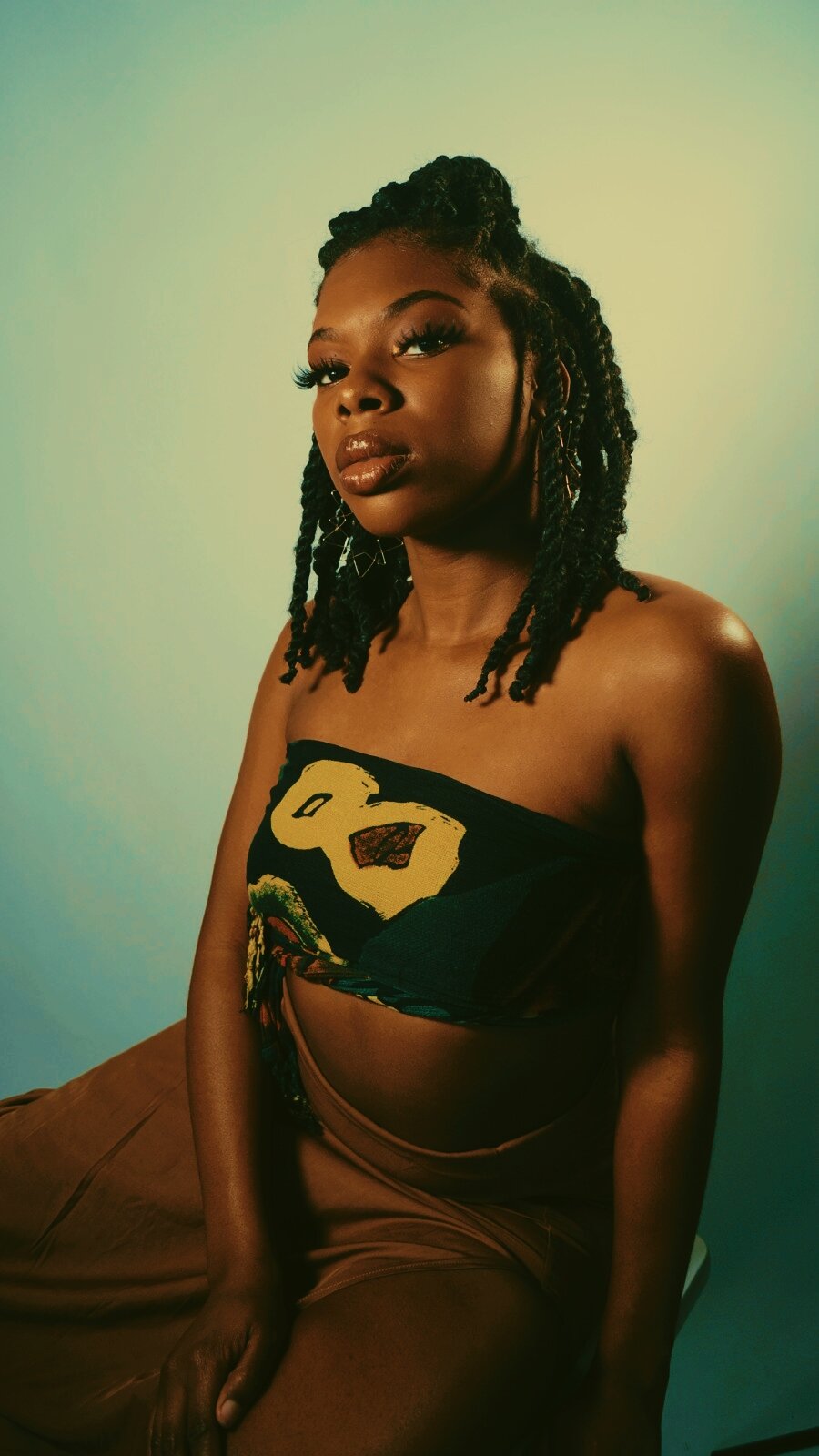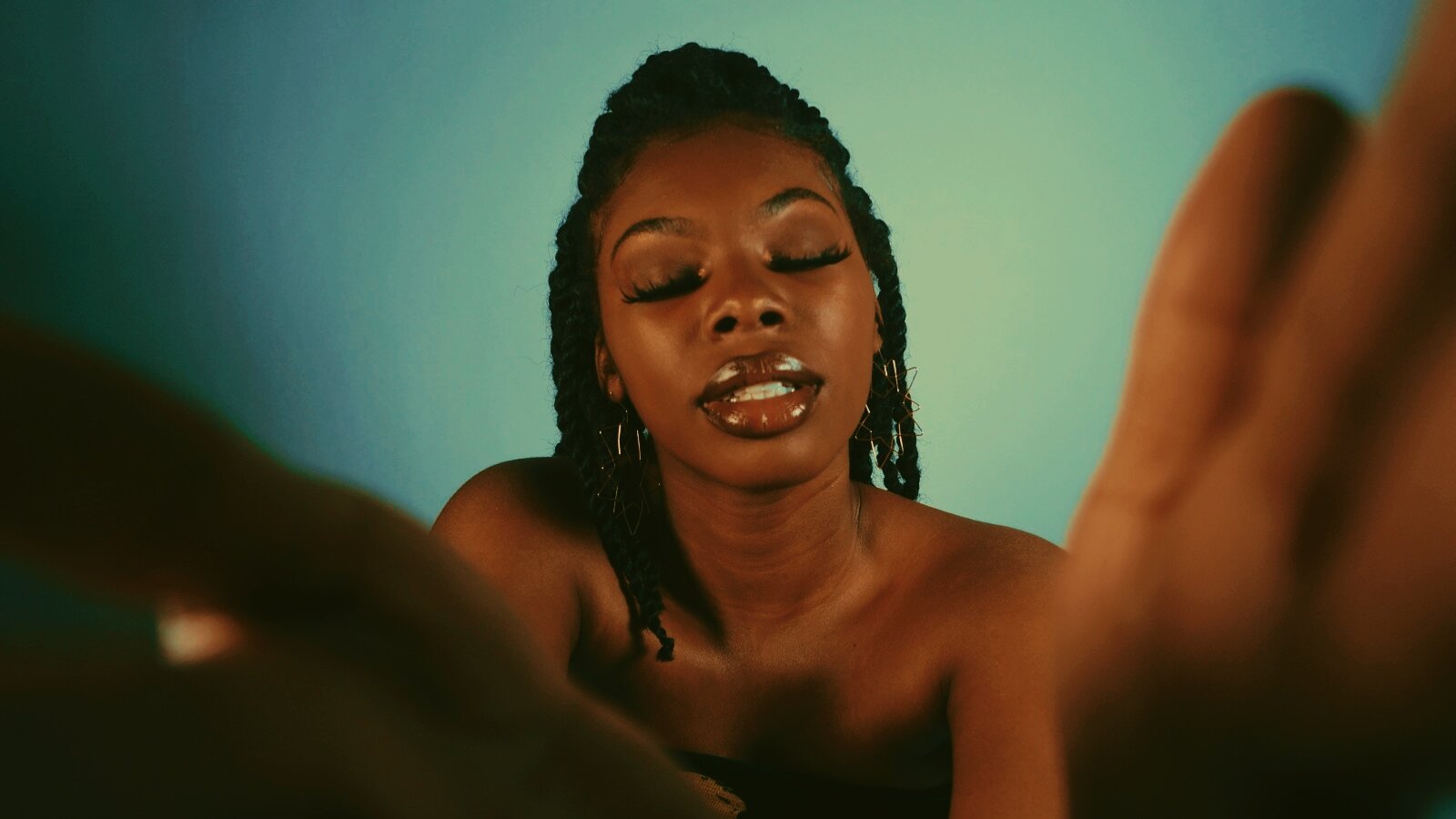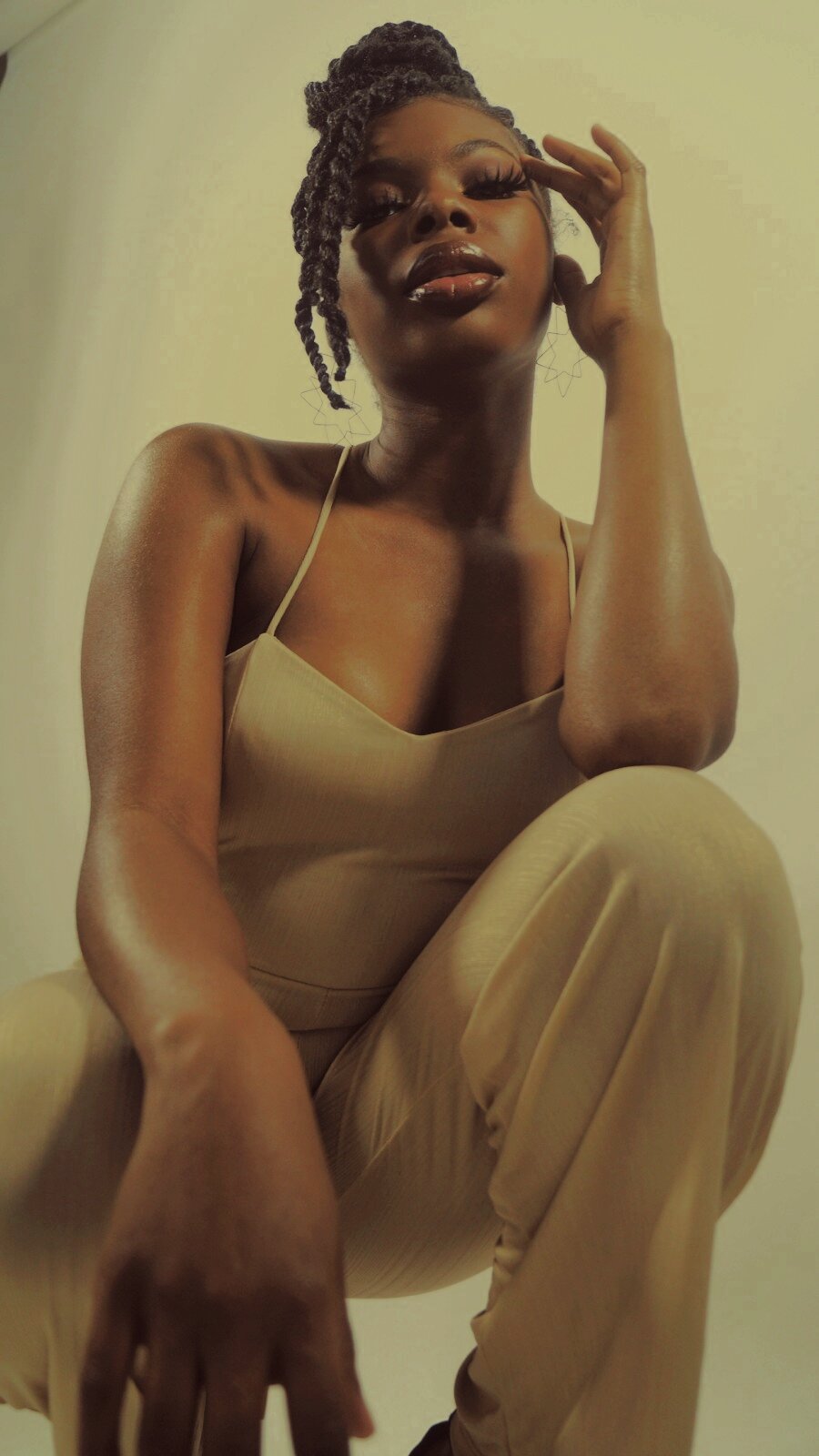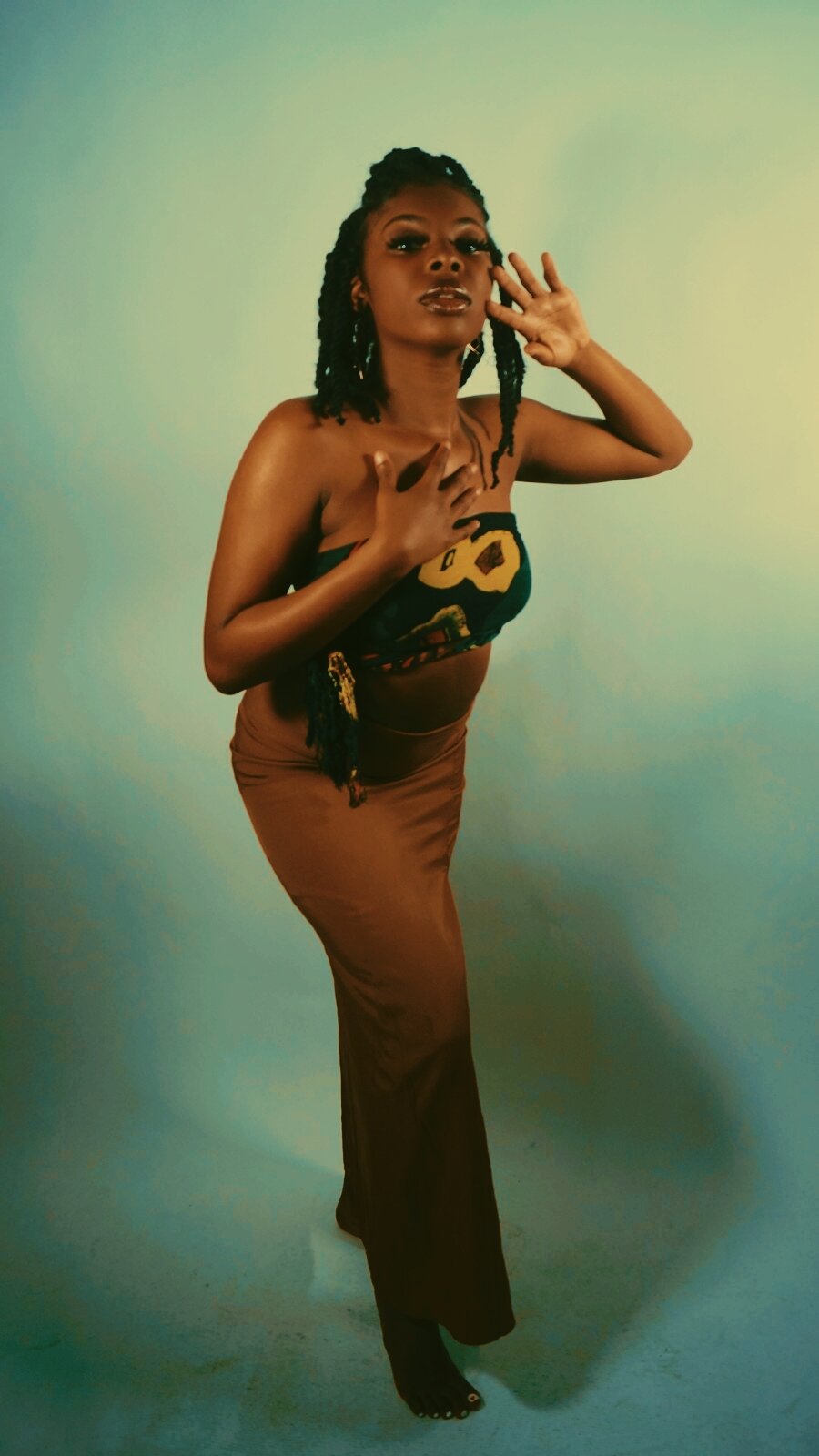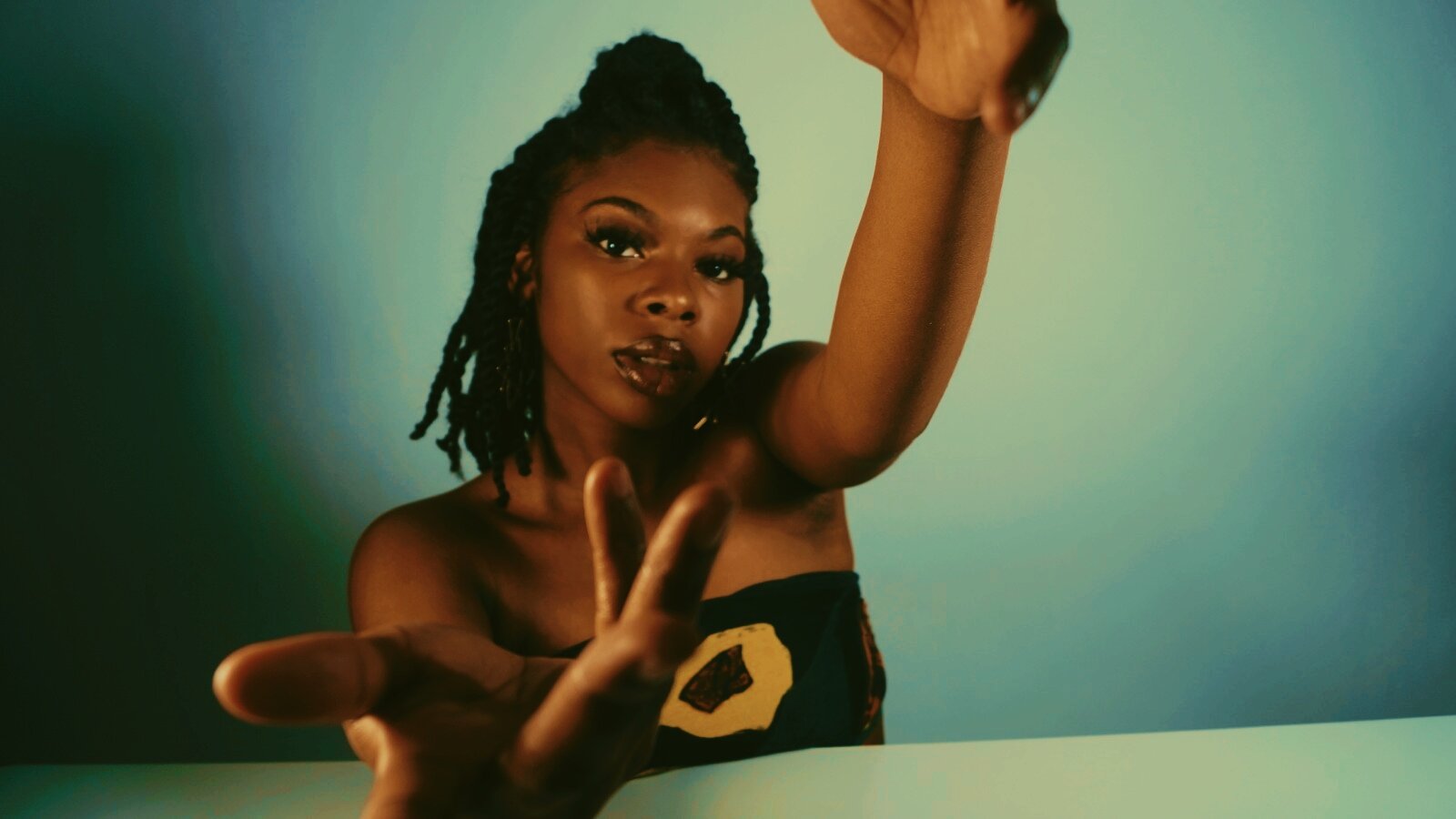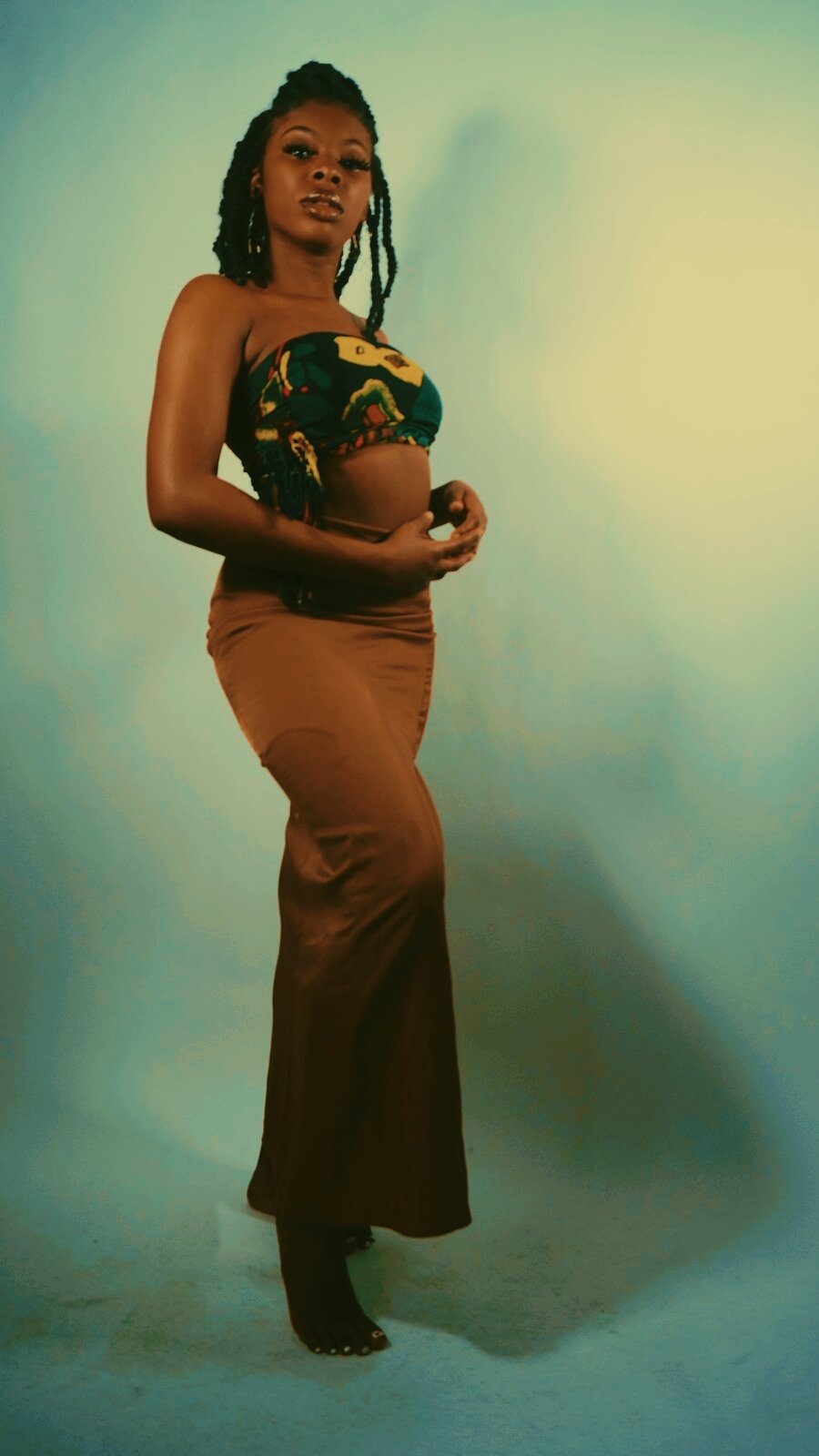Black History Month Community Feature: Sha'Diya Tomlin
Photos by Nia Harrison. Story written by Katie Chandler
This year we saw poetry take the front stage in major ways including at the presidential inauguration and the Super Bowl. While some may not know it, we have a vibrant poetry community here at Missouri State.
Sha’Diya Tomlin is a poet and president of Untamed Tongues at MSU, a poetry and art collective. Though poetry is now an important part of her life, Sha’Diya became a successful poet almost overnight.
In her sophomore year of high school, Sha’diya was placed in a desegregation education program where she and other students were bussed to a predominantly white high school on the other side of St. Louis. Angry and confused at the situation, she wrote a piece called “Dear World” to share her emotions. At the time, she didn't intentionally write it as a poem, but more of an essay to share her feelings. It was not until she shared it in her social justice class that she was aware of her skills.
“I was just reading it. I wasn't even performing it. When I got done I felt like I was going to pass out. But then when I finished [the class] just started looking at me and clapping even though I was still trying to figure out if it was any good,” Sha’Diya laughed.
After that, Sha’Diya was asked to perform it for multiple other classes, join her high school team, and eventually the state poetry team that competed nationally.
“I write to make a change,” Sha’Diya said. “The fact that my writing can change one person's mindset or make one person feel heard is so important to me. That's why I do it.”
After being told her whole life she had a strong voice, poetry became her outlet for processing her emotions. Many of her recent poems have been focused on the confusing nature of race relations.
“Poetry is the black person's art,” Sha’Diya said.“Poetry stems from so many things. It stems from music, it stems from art, it stems from history.”
While acknowledging race relations have come a long way, Sha’Diya believes there is still so much work to be done, and that Black female poets are leading the way.
“Black female poets are rewriting the narrative of the angry black woman, the strong black woman that we all have to be. With my writing, I try to change the narrative that we’re just fine and okay with everything.”
With that, her poem’s messages translate into her real-life values.
“You don't have to fit into anyone's mold. You don't have to be a strong Black woman, you don't have to be outspoken, you can be whatever version of you that you want to be.”
Sha’Diya hopes to one day have her own space where the Black community can share their voices and experiences. Whether it's an online publication or a magazine, she's determined to get there and create it. A lot of her work ethic comes from late nights with her grandma, who she calls her Hoah, memorizing poems for her high school competitions.
“I kid you not, this woman goes to sleep at 8,” Sha’Diya laughed. “I call her the night before a competition and she asked me ‘Do you got your poem memorized? You don't have it memorized? You’re gonna read it to me.’ We stayed up until 1 a.m. when I got it memorized.
Pushing her to always write and do better, her Hoah helped her become the writer and leader she is now.
You can see Sha’Diya every Tuesday night serving as president for Untamed Tongues, hosting open mics and poetry slams. Unbeknownst to Sha’Diya at the time, one of the judges at her high school poetry team competition was the founder of the very club she became president of. As president, she helps lead writing sessions and gives feedback and encouragement to fellow members.
“It was never started for only Black students, but it was created by Black students to give them space to come share their art. Even though most of our members are white now, you never feel out of place. It’s like a family,” Sha’Diya explained. “I've never once seen a person come to our club and not come back.”
Even if you do not think poetry is for you, Sha’Diya is confident there is space for everyone. For young Black women specifically who want to get into poetry, Sha’Diya’s advice is to use it as therapy.
“The Black experience we go through, there’s so much trauma. And we’re expected to just move on. Writing allows you to not only move on and record it, but help others.”
To see some of Sha’Diya’s work, follow MSUTongues on social media for their next event or follow her poetry page on Instagram @blkhonesty._

